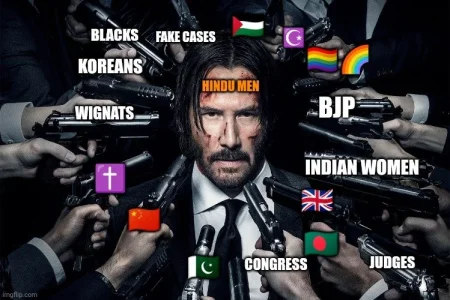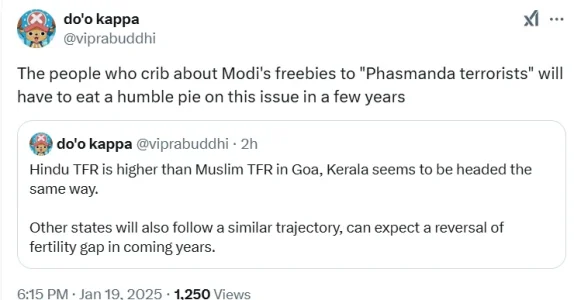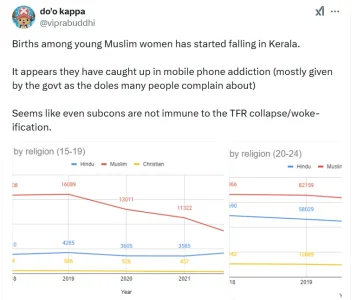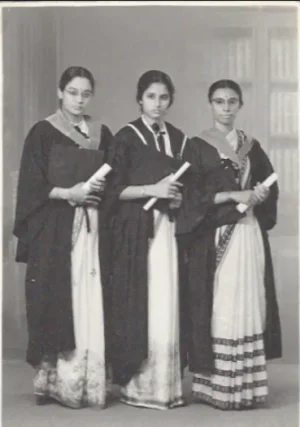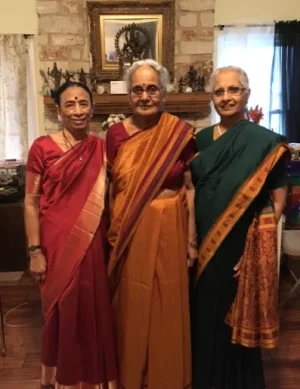Just published my inaugural essay for #FrontierDharma, titled "The Hindu Case Against "Hinduism": A Reflection on Dharma in the Diaspora", linked in the tweet below. I guess now's an appropriate time to explain what Frontier Dharma is, and why I started it.
For those of you have followed me here for a while, you'll know that my primary interest has always been the question of Hindu identity, particularly in the diaspora. My interest in the topic led me down the rabbit hole of @HindooHistory, where I've been researching the historical antecedents of contemporary representations of "Hinduism" in American culture and politics. The findings have vindicated the view that these representations exhibit a striking continuity with missionary literature published across the country from the late 18th to early 20th centuries. Though the Church has been supplanted by the University and the Missionary by the Academic/Activist, the basic contours remain the same.
Where we once saw fear of "heathenism" contaminating America's body politic, "hindutva" now plays an analogous role. The effect of this fear mongering— which is deliberately vague and recalls the sort of “dual-loyalty” smears that have been a staple of anti-immigrant discourse for centuries— has been to generally cast a pall of suspicion on the Hindu American diaspora. And while this sort of rhetoric has generally been concentrated among activist circles embedded within the progressive establishment, they have an outsized influence on media and culture and we can see how their views metastasize into the mainstream during the recent H1-B fracas, with certain sections of the right echoing similar arguments (e.g., Indian immigrants are disloyal, are casteist and generally culturally regressive, etc.).
This is all to say that given attacks from both the left and right, the question of self-representation is of critical importance. But self-representation requires more than simply and repeatedly pointing out the biases of others, a discursive pattern illustrated by the emergence of "Hinduphobia" as a key term in recent years. Instead, what's required is a positive articulation of what "Hindu" identity actually is. And in this regard, I've found myself dissatisfied, both spiritually and intellectually.
While we can agree that the prevailing view of Hinduism in the public sphere may be prejudicial, is there a consensus on what "Hinduism" actually is? The lack of such a consensus (or even an institution invested with the authority to make such a determination) is often held up as a product of Hinduism's "tolerance" or "diversity", but I think it's better explained as a product of a particular set of historical and intellectual dynamics that shaped the native Indian appropriation and adaptation of "religion" during the colonial era. It was during this period that Indians began thinking of their variegated spiritual traditions as part of the religion of "Hinduism" in the way we understand it today, and in the context of that adaptation, both reformist and orthodox factions emerged, each with their own vision of what "Hinduism" is. The dialectic between these two groups from the late 18th to early 20th centuries is primarily responsible for Hinduism's present conceptual structure, which is defined by an uneasy juxtaposition of radical universalism (I call it "inclusivism") and culturally-bound ritual praxis.
I believe it's time to critically examine this conceptual inheritance, and understanding the historical process that shaped it is the first step. This dovetails into another point that I made the other day, which is that a sustainable Hindu identity in the diaspora needs to carve out a trajectory that is independent from India. This is not just a political necessity, but a personal one, for as the diaspora further integrates into American culture, we will become increasingly distant from traditional Hindu praxis, which emerges from a distinctly Indic firmament. This has already happened among second generation Hindu Americans (my cohort).
The motivation behind Frontier Dharma is to carve out a new discursive space to explore questions of Hindu/dharmic revival in a way that is both universalist in spirit and relevant to diasporic conditions of western modernity. In that spirit, this inaugural essay isn't meant to provide all the answers, but to open up new avenues for discussion and exploration free from the constraints of the prevailing discourse.
Please read and share! And subscribe to Frontier Dharma (it's free)!

